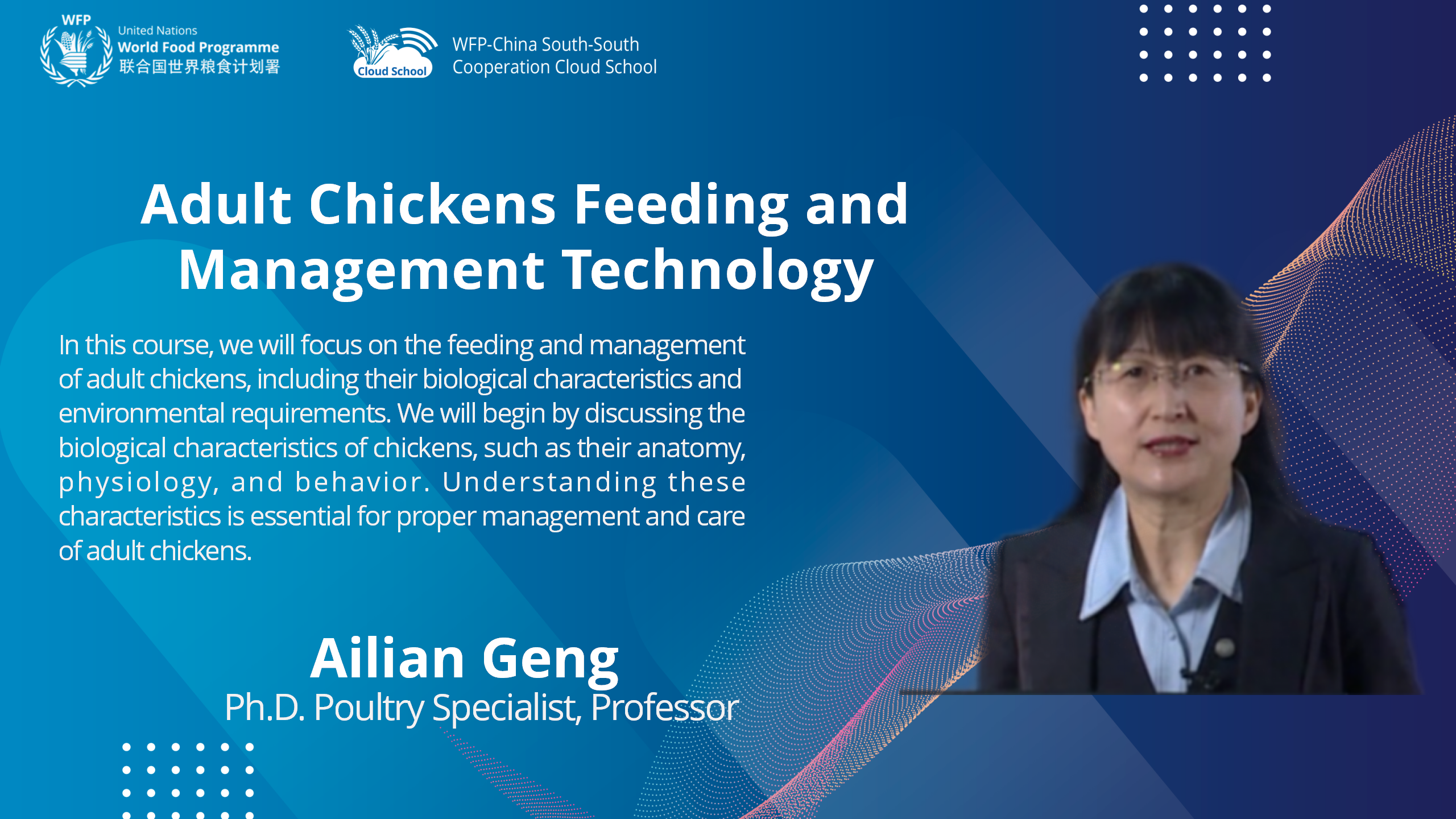In this course, we will focus on the feeding and management of adult chickens, including their biological characteristics and environmental requirements. We will begin by discussing the biological characteristics of chickens, such as their anatomy, physiology, and behavior. Understanding these characteristics is essential for proper management and care of adult chickens. Next, we will explore the environmental requirements of adult chickens, such as temperature, ventilation, lighting, and space. Providing the right environment is crucial for the health and well-being of chickens and their productivity. We will then move on to the feeding and management of brooder chickens. Brooder chickens are young chickens that require special care and nutrition to ensure proper growth and development. We will discuss the different types of feed and feeding methods for brooder chickens, as well as management techniques to ensure optimal health and growth. Throughout the course, we will also cover topics such as disease prevention, biosecurity, and the use of technology in chicken feeding and management. By the end of this course, you will have a comprehensive understanding of the feeding and management of adult chickens and the necessary techniques and technologies to ensure their health and productivity.



Comments is empty